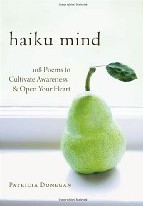

| In the Palm of Your Hand, Steve Kowit. Highly recommended. Brimming with clear and practical exercises, Kowit's book is the best 'How to' book to help you start writing poetry. My favorite chapter is about Awful Poems, where Kowit leads us cheerily through the frequent mistakes that appear in our poems, with exercises to correct them. |
| Jump-start your poetry with ideas from our writing exercises. |
Other exercises:
 Index.
Index.
 "Alien".
"Alien".
 Spell casting.
Spell casting.
 Write a poem like Billy Collins.
Write a poem like Billy Collins.
|
 Books of Poetry Form. Books of Poetry Form.
 Highlights of Poetry. Highlights of Poetry.
 Index of poetry. Index of poetry.
 How to Write Your Poetry. How to Write Your Poetry.
 How to Listen to Poetry.
How to Listen to Poetry.
 Recommended books on Reading Poetry.
Recommended books on Reading Poetry.
|
 Log of books read.
Log of books read.
|
Poetry exercises with poetry forms:
 Forms of skaldic verse. Forms of skaldic verse.
 Haibun. Haibun.
 Haiku. Haiku.
 Hay(na)ku. Hay(na)ku.
 Rengay. Rengay.
 Tanka. Tanka.
 Concrete. Concrete.
 Ghazal. Ghazal.
 Lai. Lai.
 Pantoum. Pantoum.
 Rondeau. Rondeau.
 Rubáiyát. Rubáiyát.
 Sestina. Sestina.
 Sonnet. Sonnet.
 Terza rima. Terza rima.
 Triolet. Triolet.
 Tritina. Tritina.
 Villanelle. Villanelle.
|
Other poets:
 Billy Collins and
exercise. Billy Collins and
exercise.
 Franz Wright. Franz Wright.
 Jack Gilbert. Jack Gilbert.
 Jorie Graham. Jorie Graham.
 Karen Braucher. Karen Braucher.
 Len Anderson. Len Anderson.
 Li-Young Lee. Li-Young Lee.
 Linda Pastan. Linda Pastan.
 Nordic Skalds. Nordic Skalds.
 Richard Hugo's Triggering Town. Richard Hugo's Triggering Town.
 W.S. Merwin. W.S. Merwin.
 Adam Zagajewski. Adam Zagajewski.
|

|

| In the Palm of Your Hand, Steve Kowit. Highly recommended. Brimming with clear and practical exercises, Kowit's book is the best 'How to' book to help you start writing poetry. My favorite chapter is about Awful Poems, where Kowit leads us cheerily through the frequent mistakes that appear in our poems, with exercises to correct them. |

| The Making of a Poem: A Norton Anthology of Poetic Forms, Edited by Mark Strand and Eavan Boland. |
| Books on Writing Poetry. | Other Books of Poetry Form. |
 Highlights of Poetry.
Highlights of Poetry.
 Poetry index.
Poetry index.
|
|
Copyright
© 2002-2014 by J. Zimmerman.
This page displayed using your recycled bits. |